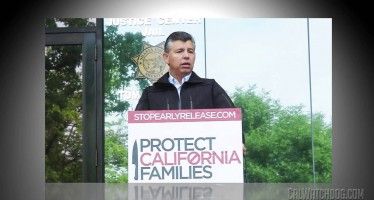Public ‘onslaught’ stopped union PLA bid
By John Hrabe
If you’re jaded about politics and question whether elected officials listen to their constituents, consider the story of how a group of concerned taxpayers and small business owners stopped the Coast Community College District in Orange County from adopting a controversial project labor agreement. The PLA would have allowed only unionized firms to bid on millions of dollars in construction projects sponsored by Measure M, a $698 million bond approved by voters last November. The action will give heart to PLA opponents across California.
As I reported on CalWatchdog.com, during last year’s campaign for the bond measure, the district promised OC Tax, Orange County’s preeminent taxpayer group, that it had no intention of adopting a PLA for the project. Although the group does not formally endorse or oppose school bonds, it provides a 13-point checklist to assess the fiscal responsibility of the borrowing. The disclosure of any labor agreements is part of the evaluation process.
Opposition
In January, according to the Daily Pilot, Trustee Jerry Patterson added the PLA issue to the district’s agenda, a move that immediately drew the ire of residents opposed to the district’s double-cross. The board was inundated with opposition until May, when it voted to include union and non-union firms in the bidding process.
What caused the district to do a triple flip on a project labor agreement?
In an attempt to shed light on the district’s confused decision-making process, CalWatchdog.com reviewed more than 1,100 pages of documents obtained by a public records request. The internal documents, primarily emails to and from trustees, show a relentless wave of public opposition. And while many of the trustees were caught off guard by the issue, Patterson, the trustee that added the issue to the agenda, fully expected an intense battle.
“The onslaught begins,” Patterson wrote in an email on February 26. When CalWatchdog.com asked Patterson about the email, he explained, “The onslaught which I referred to only described the anti-union builder organizations who had proven themselves to be opinionated and untruthful.”
The clarification was unnecessary. It’s obvious from the documents that the Associated Builders and Contractors and the Coalition for Fair Employment in Construction, two organizations that view PLAs as costly interferences in free market competition, controlled the debate about the controversial issue. In March and April, the two groups barraged the trustees with dozens of emails.
“We are proud to have not only uncovered this scheme but to have helped lead to its ultimate defeat,” said Eric Christen, executive director of Coalition for Fair Employment in Construction. “Fortunately, the board majority put the rights of all workers and taxpayers ahead of big labor special interests.”
Christen and his ABC counterpart, Dave Everett, accounted for hundreds of pages of the public documents reviewed by CalWatchdog.com. When the pair wasn’t firing off fact sheets or policy papers to trustees, they were encouraging local contractors and concerned taxpayers to send personalized emails explaining their opposition.
Contractors
Alfred Dennison, an Orange County electrical contractor with 33 years in the business, was one of the numerous contractors that emailed the trustees in opposition to the PLA.
“The unions want a PLA in place so they don’t have to compete,” Dennison wrote in a March 6 email. His company, Dennison Electric Inc., has completed several projects for the college district and would have been shut out of the process with a PLA. “The reason we have won so many projects is that we are more competitive than union contractors and have been able to save OC Districts thousands of dollars.”
Kevin Dayton, president and CEO of Labor Issues Solutions, LLC, another member of the public to contact the district in opposition to the PLA, said he was pleased that so many people joined the effort. “It was encouraging to see Orange County activists for fiscal responsibility pay attention to policy decisions at their local community college district,” he said.
One trustee says the public comments helped educate trustees about the issue because some of them had little prior knowledge about PLAs.
“My vote was based on reading all sorts of materials, meetings with people from all sides and listening to all points of view–and then determining what I thought was best for the Coast District,” said Coast Board President Lorraine Prinsky, also a professor at Cal State Fullerton for 35 years. “It was quite a difficult few meetings but I believe we did what was in the best interest of Coast District.”
The three-month labor controversy was exacerbated by perceptions that the trustees were trying to sneak an agreement past voters. Everett said that the secretive approach to the issue only made it easier to motivate constituents to contact the board.
“It is no surprise that Big Labor bosses wanted to keep this from becoming a public issue,” Everett said. “They work so hard to keep these out of the public debate because they know that on the merits, these special interest deals are indefensible.”
Union leaders also contacted the district to drum up support for the PLA. But the internal documents show that labor was completely outmatched by the two free-market groups.
Related Articles
Vile lefty talk show host rides again
Nov. 29, 2012 Katy Grimes: The gross double standard in media today was exacerbated Monday when far-left, liberal radio talk
Judiciary OKs Dependency Bill
Steven Greenhut: Most of the attention at today’s Assembly Judiciary Committee was focused on the latest anti-immigration nonsense from Republican
Video: Jerry’s Kids You Want to Avoid and the Prison System That Created Them
June 14, 2013 Alexis Garcia interviews John Phillips on Gov. Jerry Brown’s prisoner release program. NOTE: The opinions of guests





